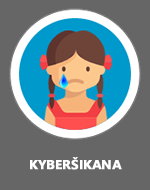 Extortion that exploits intimate materials, known as sextortion, is a serious issue in cyberspace. According to data from the E-Bezpečí counseling center, men become victims of this type of extortion far more often than women. An analysis of cases handled by the counseling center shows that of the total number of sextortion cases, men constituted more than 78% of the victims, while women accounted for only 22%.
Extortion that exploits intimate materials, known as sextortion, is a serious issue in cyberspace. According to data from the E-Bezpečí counseling center, men become victims of this type of extortion far more often than women. An analysis of cases handled by the counseling center shows that of the total number of sextortion cases, men constituted more than 78% of the victims, while women accounted for only 22%.
Why are men more frequent victims?
One reason men more often fall into the sextortion trap may be a higher rate of risky behavior online. Men are often more willing to share their intimate materials or engage in online communication with strangers, making them more vulnerable to extortion. Another factor could be a less cautious approach to online privacy protection.
We must also not forget issues related to sexual education - topics related to establishing intimate contacts in the online environment are unfortunately often not part of primary school education, nor do parents frequently address these topics with their children.
How does sextortion occur?
Sextortion usually begins with seemingly innocent communication on social networks or dating apps. After building trust, attackers disguised as fake profiles (so-called catfish) persuade victims to share intimate materials. They then threaten to publish them if the victims do not pay a certain amount of money or provide more materials. In this way, attackers exploit the victims' shame and fear to manipulate them and extract further resources.
Catfish refers to a situation where someone online pretends to be another person, often for fraud or deception. The scammer creates a fake profile on social networks or dating apps and establishes contact with potential victims to gain their trust. Subsequently, they can exploit this trust to obtain money, sensitive information, or other benefits.
Cases involve both minors and adults
Extortion cases involve both children and adults. The scheme remains the same and repeats - a boy meets a girl online who extracts intimate materials from him and then blackmails him, threatening to publish them and damage his reputation. The boy then prefers to pay rather than face ridicule. Some recent cases:
15-year-old boy (May 16, 2024): “Hello, for the past few days I have been chatting with someone who pretended to be a girl. After sharing intimate photos, the attacker started demanding money in exchange for not publishing them.”
20-year-old man (May 15, 2024): “Hello, I became a victim of a catfish. Someone pretended to be an attractive woman, established a relationship with me, and after obtaining intimate materials, started extorting me.”
17-year-old boy (May 12, 2024): “Hello, a few days ago, someone contacted me pretending to be a peer. After exchanging photos, threats and demands for money started coming.”
16-year-old boy (May 11, 2024): “I am a boy, and we chatted just last night. During the communication, I sent several photos. This morning threats of publication arrived if I did not pay.”
19-year-old man (May 10, 2024): “Extortion involving the publication of intimate photos that I initially shared with someone I thought was trustworthy. The attacker demanded money or more photos.”
Prevention is key
Prevention and education are key tools in the fight against sextortion. It is essential that people are informed about the risks associated with online communication and the consequences of sharing intimate materials. Parents should openly talk with their children about safe online behavior, and schools should include topics of cybersecurity and privacy protection in their educational programs.
It is also important to provide victims of extortion with access to professional help and support. Counseling centers like E-Bezpečí play a crucial role in providing advice and assistance to sextortion victims, as well as in spreading awareness and information on how to defend against this danger. If someone becomes a victim of sextortion, they should immediately contact the relevant authorities and a counseling center to get the necessary support and protection.
Through joint efforts, we can reduce the number of sextortion victims and create a safer online environment for everyone. Your safety is important - protect your privacy and be cautious when sharing personal and sensitive information online.
Prof. Kamil Kopecký
Palacký University Olomouc
The E-Bezpečí counseling center is supported by the Statutory City of Olomouc, the Olomouc Region, the Ministry of the Interior of the Czech Republic, O2, and this year also by the ČEZ Foundation. Thank you very much for your support!
































